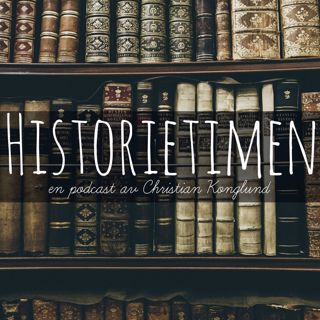
What it Means to Learn Science
How does the world solve complex problems like climate change? One answer may be to teach science in more complex and personal ways. Through the research project, Learning in Places, Professors Megan Bang and Carrie Tzou are developing innovative and equitable field-based science lessons. In this episode of the EdCast, Bang and Tsou share ways to make science more personal and how to better connect children's learning to the natural world.
2 Des 202026min

Finding Gratitude in Challenging Times
In this episode, Kristi Nelson, the executive director of a Network for Grateful Living, discusses why some people have an easier time finding gratitude than others, the role of education in being grateful, and how to implement strategies and education in order to cultivate more grateful living.
25 Nov 202019min

The Amateur Enterprise of College Teaching
How much has college teaching really changed in 150 years? Not very much, according to Jonathan Zimmerman, an education historian and professor at the University of Pennsylvania. In his latest book, The Amateur Hour, Zimmerman traces the history of undergraduate teaching practices in the United States and how it has yet to reach a level of professionalization. In this episode of the EdCast, Zimmerman discusses how colleges and universities got to where they are today, and what it might take to change the future of college teaching.
18 Nov 202016min

Teaching Across a Political Divide
America seems more divided than ever. Paula McAvoy, an assistant professor at North Carolina State University, has long focused her work on helping educators teach young people how to live together in this world. Educators can use the recent presidential election as a tool. In this episode of the EdCast, McAvoy discusses how to make the most of your "political" classroom.
9 Nov 202018min

Applying Education Research to Practice
Education research is often disconnected from the reality of practitioners in the field. Carrie Conaway, a senior lecturer at Harvard and an expert on how to apply education research in practice, gets into the details of how to bridge the gap between education research and practice. In this episode, she discusses the way education leaders can use existing education research and also begin to implement their own evidence-based research to figure out what works.
4 Nov 202020min

How Colleges Fail Disadvantaged Students
In this encore episode of the Harvard EdCast, which originally aired on February 13, 2019, Tony Jack discusses the consequences of conflating access and inclusion — and the barriers that low-income students face when they get to college -- a situation even more important in the wake of campus closures due to COVID.
28 Okt 202025min

How Covid-19 Impacts Rural Schools
We don't often hear about the 15% of students who attend rural schools. It seems this population is often left out of national conversations about the impact of COVID on education. Mara Tieken, an associate professor at Bates College, is an expert on rural schools and has been helping many rural school districts cope throughout the pandemic. In this episode, Tieken talks about some of the ways rural schools are getting through the pandemic and ideas on how to include rural schools in the national conversation.
21 Okt 202017min

Education in Uncertain Times
Times are troubling for many higher education institutions around the country. With many enrollments down and huge drops in student applications for federal financial aid, it's not just institutions struggling but low-income college goers are facing major disruptions as well. Bridget Terry Long -- the dean of the Harvard Graduate School of Education and an economist -- is concerned about every student and how the pandemic may impact their education and futures. In this episode, she speaks candidly about the many challenges facing higher education institutions, college goers, and what it's like to lead an institution during a pandemic.
14 Okt 202022min





















